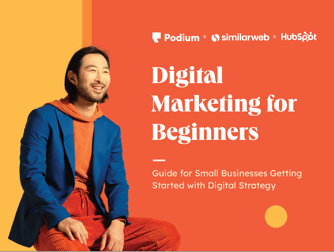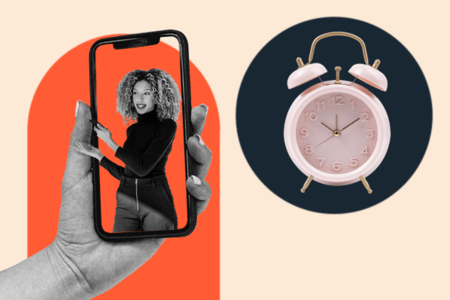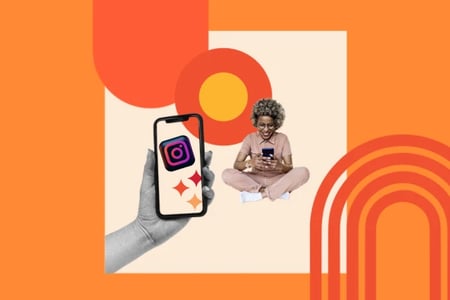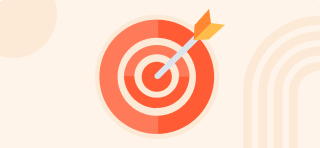-

How Conversion Funnels Create a Better Customer Journey [+ Tips to Optimize Your...
From awareness to action — learn how to fine-tune your conversion funnel to improve engage...
Katrina Kirsch
3/28/25
-

Navigating Global Expansion: What Brands Can Learn from Liquid Death's UK Exit
Learn why Liquid Death's edgy marketing failed in the UK and discover key insights for suc...
Cyan Zhong
3/28/25
-

How to Use Claude to Create a Virtual Assistant (in Under 10 Minutes)
Discover how to set up and use Claude's AI-powered virtual executive assistant to boost pr...
Kieran Flanagan
3/27/25
-

How to Create a Complete Marketing Strategy [Data + Expert Tips]
A marketing strategy is essential to effectively nurture your customers. Get powerful resu...
Sam Lauron
3/27/25
From HubSpot's video library
-
.jpg?height=240&name=YT-237_A%20(1).jpg)
How to Start Affiliate Marketing With No Experience or Money (4 Free Tools!)
-

How Airlines Really Make Money | Hustlenomics | The Hustle
-
.jpg?height=240&name=IMG_0735%20(1).jpg)
What Entrepreneurs Can Learn From Native Deodorant
-

Meet the Designer Behind the Iconic Nudie Suit | Unknown Empires
-

Tips For Elevating Your Next Go-To-Market Strategy (+ Free Templates)
-

Why T-Mobile Trademarked This Color | The Hustle
-
.jpg?height=240&name=YT-237_A%20(1).jpg)
How to Start Affiliate Marketing With No Experience or Money (4 Free Tools!)
-

How Airlines Really Make Money | Hustlenomics | The Hustle
-
.jpg?height=240&name=IMG_0735%20(1).jpg)
What Entrepreneurs Can Learn From Native Deodorant
-

Meet the Designer Behind the Iconic Nudie Suit | Unknown Empires
-

Tips For Elevating Your Next Go-To-Market Strategy (+ Free Templates)
-

Why T-Mobile Trademarked This Color | The Hustle
-
.jpg?height=240&name=YT-237_A%20(1).jpg)
How to Start Affiliate Marketing With No Experience or Money (4 Free Tools!)
-

How Airlines Really Make Money | Hustlenomics | The Hustle
-
.jpg?height=240&name=IMG_0735%20(1).jpg)
What Entrepreneurs Can Learn From Native Deodorant
-

Meet the Designer Behind the Iconic Nudie Suit | Unknown Empires
-

Tips For Elevating Your Next Go-To-Market Strategy (+ Free Templates)
-

Why T-Mobile Trademarked This Color | The Hustle
-

I Took a Deep Dive Into Market Segmentation — Here's Everything I Learned
I took a deep dive into market segmentation. Here’s everything I learned.
Diego Alamir
3/18/25
-

Testimonial Questions Reps Need to Ask Their Customers
Not all testimonials are created equal — use these 25 smart questions to capture customer ...
Ashley Valadez
3/17/25
-

How the Customer Journey Funnel Revamps Traditional Methods and Drives Business
See how the customer journey funnel helps businesses nurture leads, boost retention, and t...
Ashley Valadez
3/14/25
-

AI Intent — Figuring Out the Purpose that Drives Service Tech
AI intent is an AI system’s ability to understand the meaning behind a user’s input. Disco...
Kolawole Samuel Adebayo
2/21/25

An Introduction to Digital Marketing
Learn the basics of digital marketing and explore different ways to reach your ideal customer.
-

Price Elasticity: What It Is & How to Calculate It
Economics doesn’t have to be confusing — this guide breaks down price elasticity so you ca...
Meg Prater (she/her)
3/28/25
-

When Business Is Slow, It's Time to Work on These 16 Things
Slow business happens to everyone. The key is spotting the patterns, understanding what’s ...
Jenny Bergen Clark
3/28/25
-

Frictionless Selling: Don't Sell to People, Collaborate With Them
Frictionless selling can lead to sustainable, long-term success. Learn what it is, how you...
Michael Welch
3/27/25
-

What Is Cross-Selling? Intro, Steps, and Pro Tips [+Data]
What is cross-selling? What can it do for your brand and sales? Learn the main benefits an...
Sophia Bernazzani Barron
3/27/25
From the HubSpot Podcast Network
-
Business Made Simple

Your Website Probably Stinks—Here’s How to Fix It!
-
The Science of Scaling

How to Scale a Billion Dollar Sales Team w/ John McMahon (Board Member, Snowflake)
-
Truth, Lies and Workplace Culture
-2.png?height=240&name=PodcastCovers23%20(1)-2.png)
From Bystander to Ally: How to Avoid DEIB Washing
-
Imperfect Action
-2.png?height=240&name=PodcastCovers23%20(4)-2.png)
The art of the post-launch review: 5 questions to make your next launch a success
-
Latinx In Power
.png?height=240&name=PodcastCovers23%20(6).png)
Harnessing the Power of Silence in Negotiation with Diana Kleps
-
The Sales Evangelist

5 Ways To Do Daily Outbound With LinkedIn
-
Business Made Simple

Your Website Probably Stinks—Here’s How to Fix It!
-
The Science of Scaling

How to Scale a Billion Dollar Sales Team w/ John McMahon (Board Member, Snowflake)
-
Truth, Lies and Workplace Culture
-2.png?height=240&name=PodcastCovers23%20(1)-2.png)
From Bystander to Ally: How to Avoid DEIB Washing
-
Imperfect Action
-2.png?height=240&name=PodcastCovers23%20(4)-2.png)
The art of the post-launch review: 5 questions to make your next launch a success
-
Latinx In Power
.png?height=240&name=PodcastCovers23%20(6).png)
Harnessing the Power of Silence in Negotiation with Diana Kleps
-
The Sales Evangelist

5 Ways To Do Daily Outbound With LinkedIn
-
Business Made Simple

Your Website Probably Stinks—Here’s How to Fix It!
-
The Science of Scaling

How to Scale a Billion Dollar Sales Team w/ John McMahon (Board Member, Snowflake)
-
Truth, Lies and Workplace Culture
-2.png?height=240&name=PodcastCovers23%20(1)-2.png)
From Bystander to Ally: How to Avoid DEIB Washing
-
Imperfect Action
-2.png?height=240&name=PodcastCovers23%20(4)-2.png)
The art of the post-launch review: 5 questions to make your next launch a success
-
Latinx In Power
.png?height=240&name=PodcastCovers23%20(6).png)
Harnessing the Power of Silence in Negotiation with Diana Kleps
-
The Sales Evangelist

5 Ways To Do Daily Outbound With LinkedIn
-

21 Dos and Don’ts of Using Website Templates in 2025
Learn how to choose and effectively use website templates with these expert tips and guide...
Casper Jensen
3/27/25
-
Fluid Design and How It Is Used on Websites — My Deep Dive
Discover the power of fluid design in web development. Learn what it is, how it works, and...
Jamie Juviler
3/27/25
-

45 Website Pop-up Examples That Get Clicks
Explore some of the best website pop-up designs that get clicks, generate leads, and keep ...
Jamie Juviler
3/26/25
-

Primary and Secondary Navigation Explained, Making the Right Decision for Your S...
Learn the difference between primary and secondary navigation, two essential components fo...
Jamie Juviler
3/26/25
-

Yes, You Need a UX Persona. Here's Why & How to Create One
Learn how to create UX personas for your design projects. Understand the importance of use...
Althea Storm
3/25/25
-

25+ Web3 Website Examples to Inspire Yours
Discover the best Web3 websites that combine decentralization with stunning user experienc...
Nathan Ojaokomo
3/24/25
Explore more topics
Ready to brush up on something new? We've got more to read right this way.






.png)
